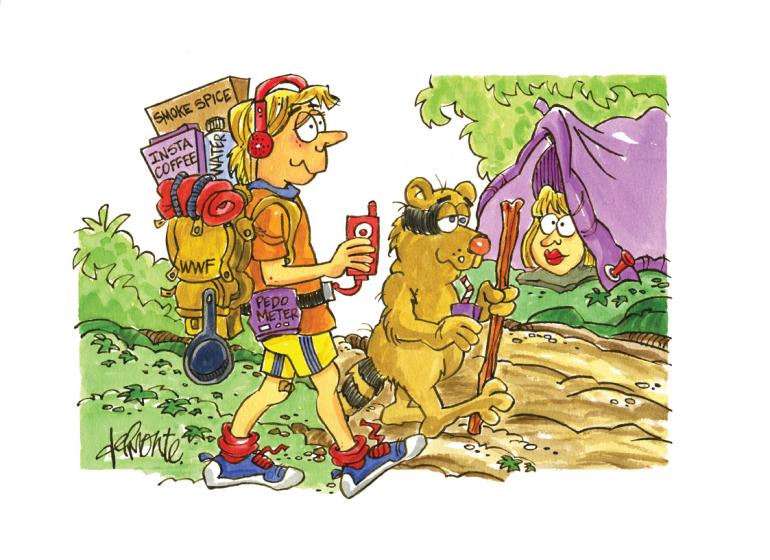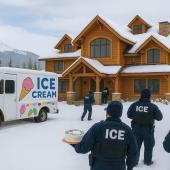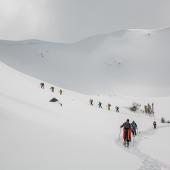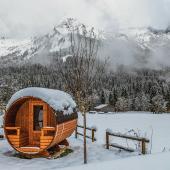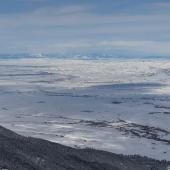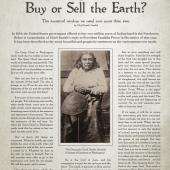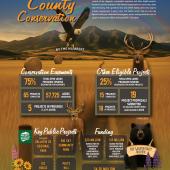Please, Leave a Trace
We’ve all seen them. Like a herd of placid bovines at the feed pile, their Subys line up at the trailhead lot, so caked with dust and mud that you can barely read the Sierra Club, WWF, and “Live Simple So Others Can Simply Live” bumper stickers.
Out of those cars emerge obese backpacks teeming with all forms of plastic and titanium gadgets, gear, and gizmos—all highly indispensable, of course. Next up are a rainbow of multicolored tents, tarps, and clothes, along with a veritable galaxy of petroleum-fueled stoves, ready to cook up those prepackaged soups and hordes of instant noodles. Last come the wide-eyed and overly caffeinated hikers, campers, and outdoors people ready to bag another peak.
Doesn’t this parade obscure the meaning of all those bumper stickers? The world of outdoor recreation, education, and adventure-based expedition has become paradoxical in nature. On one hand, we voice an environmental ethic based on protecting wilderness—after all, it’s where we live and play. But on the other hand, we make choices about the gear we buy, the food we eat, and the places we go that bring our environmental ethics into question. We’re spending more money to get less of what we truly want, and if you ask me, I’d rather not push a broom for a few more hours just to buy a new trail watch with a built-in AM/FM radio, altimeter, pedometer, can opener, MP3 player, and optional chainsaw attachment.
I once co-led a presentation at a Wilderness Education Association conference on sustainability in outdoor education. In order to illustrate how far the outdoor world has come from its roots, I showed the group a black ash basket that I use to carry my camping gear. I told them of the tree I cut down to harvest the materials and the buckskin I used for the harness—an alternative to the plastic, rubber, and aluminum of a modern backpack. After the presentation, a fellow educator mentioned that he was astonished that I would cut down (and therefore kill) a tree to make a basket. “Not very ‘Leave No Trace,’” he scolded.
That was a “Is it just me or has the whole world gone crazy?” kind of moment. The common consensus is that we should recreate while leaving as little impact on the local ecosystem we are recreating in. No argument there. The problem is that in order to “leave no trace,” people are buying gear and food that certainly left a trace somewhere, just not where we can see it. At best, we’re only practicing “displaced impact” camping.
Now, I’m not saying we can’t play outdoors—far from it. But every time we buy those new plastic widgets, drive to those distant trailheads, or slurp down those prepackaged meals, the world gets a little less wild.
The upshot is that with three small tweaks we can change the way we look at our outdoor pursuits without having to give up those endeavors that make life so great.
1. Make Your Gear. Live by the motto “make it, borrow it, rent it, and if all else fails then think about buying it.” Nearly all outdoor gear used to be made out of local, renewable resources, and with a little ingenuity, you too can outfit yourself with some pretty cool gear—and you’ll be the talk of the trail. When all else fails, think about buying it, or better yet, try going without.
2. Support Food. Although it’s becoming common practice these days to support local farmers, you’re still more likely to see campers munching on industrially made nutrition bars than on venison jerky and garden veggies. Sure, the food might weigh a bit more, but without all that gear you didn’t buy, you’ll never even notice the difference.
3. Ask Why. This is the hardest and the most personal avenue of change: ask yourself why you go to the backcountry. Is it so you can field calls from the office in a new place, or is it so you can exhale all the stress of daily life and remember that there is something out there greater than the internet?
So here’s the challenge: find a local trail this summer and spend the night there with only a knife, a bomber method for lighting a fire, a small tarp or a blanket, and some local food. While you’re there, ask yourself why you’re there. Better yet, go with some friends and let me know how it went.
Paul is a senior instructor at Jack Mountain Bushcraft and Guide Service in Maine and founder of Sustainable Outdoor Adventure and Recreation at soaroutdoors.com.


